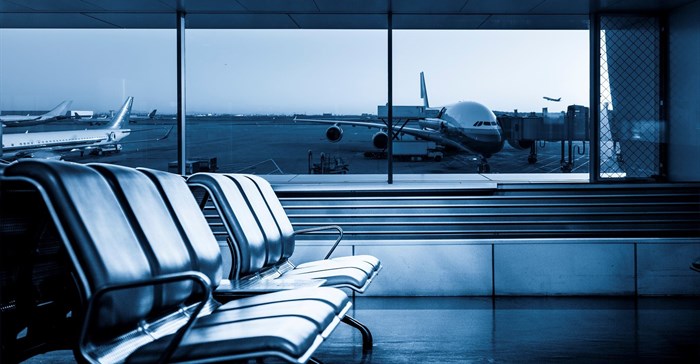In addition to the 14 airports already permitted to operate, four more airports have been given the green light to resume operations, says Transport Minister Fikile Mbalula.
Addressing a media briefing on Tuesday on the new Covid-19 regulations related to the transport sector under alert level 2, Mbalula named Mthatha Airport, Hoedspruit Airport, Phalaborwa Airport and Margate Airport as the new additions.
"Air travel is crucial to our efforts to gradually resume economic activity. In re-opening our airspace, we have put protocols in place to determine the state of readiness for our airports to resume operations in a phased manner.
“This process is managed by the Civil Aviation Authority, which has done a splendid job in ensuring compliance with safety and health measures. Despite the movement to alert level 2, we will continue on the same trajectory until every one of our airports meets the strict protocols," Mbalula said.
Under alert level 2, international air travel remains prohibited.
South Africa moved to lockdown level 2 from midnight on Monday, 17 August 2020.
Public transport
Under level 2 of the lockdown, interprovincial travel is now permitted, subject to restrictions on public transport vehicles.
"Mini-buses, midi-buses and buses are only permitted to carry a maximum of 70% of their licensed passenger carrying capacity when undertaking long distance travel.
"For the undertaking of short distance public transport of 200km or less, buses, mini-buses, midi-buses, e-hailing services, metered taxis, shuttle service, chauffer driven vehicles and scholar transport vehicles are permitted to carry 100% of their maximum licence capacity," the Minister said.
Long distance has been defined as any distance in excess of 200km, irrespective of whether it crosses provincial boundaries or not.
Mbalula said it is a strict requirement that at all times, the operators of public transport services should adhere to the health protocols stipulated in the current regulations applicable to alert level 2.
Rail operations are permitted to carry a maximum of 70% of their licensed passenger capacity.
Long distance passenger rail is now permitted to resume operations, subject to the passenger capacity restriction.
"In line with our commitment to maintain maximum compliance with health protocols, a driver, owner or operator of a public transport service may not allow any member of the public not wearing a face mask to board or be conveyed in public transport owned or operated by him or her," the Minister said.
Maritime
In line with the gradual easing of restrictions, foreign crew changes are permitted only at the Cape Town Port and at the Port of Durban, subject to compliance with the following conditions:
• A request for crew changes must be completed by a shipping company or its representatives on a prescribed form, which must be submitted at least 96 hours prior to the crew changes to the Department of Transport.
• The crew must comply with all the travel protocols of the port of entry where the crew changes will be undertaken.
• Crew changes may take place at port and off-port limit.
• Signing-on crew may directly transit from the airport to the board and the vessel, provided that if a layover is necessary, the crew must be quarantined, as per the port health protocols, at the employer’s cost and the name of the quarantine facility must be specified on the form.
• Signing-off crew of a passenger vessel may directly transit to the airport.
• Only in exceptional circumstances may the signing-on and signing-off crew be permitted to layover.
• Cruise ships remain prohibited from calling at any of the South African ports, except for the disembarkation of returning South African crew, South African citizens or holders of permanent residence permits.
Road Traffic Amendment Bill
Meanwhile, The Road Traffic Amendment Bill, which introduces 0% alcohol level for all motorists, was introduced in Parliament in June 2020.
"Section 65 of the principal Act is hereby amended. No person shall, on a public road, drive a vehicle, or occupy the driver’s seat of a motor vehicle, the engine of which is running, while there is any concentration of alcohol in any specimen of blood taken from any part of his or her body [is not less than 0,05 gram 10 per 100 millilitres]," the Minister said.
Research conducted by the Road Traffic Management Corporation (RTMC), in collaboration with the South African Medical Research Council and the University of South Africa, shows that driver alcohol intoxication accounts for 27.1% of fatal crashes in South Africa.
This is estimated to cost the economy R18.2bn annually.





































